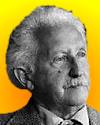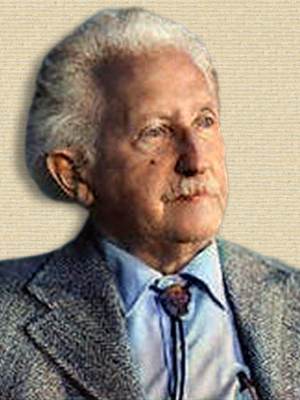 (source)
(source)
|
Erik H. Erikson
(15 Jun 1902 - 12 May 1994)
German-American psychoanalyst who trained under Anna Freud (1927–33), specializing in child psychology. He widened the scope of psychoanalytic theory to take greater account of social, cultural, and other environmental factors.
|
Science Quotes by Erik H. Erikson (5 quotes)
I have nothing to offer except a way of looking at things.
— Erik H. Erikson
In Childhood and Society (1950, 1993), 403.
One of my teachers in the Vienna Psychoanalytic Institute in the late twenties was Dr. Paul Federn…. At the time, his concept of “ego boundaries” was much discussed as important but opaque. We students, in some desperation, asked him…to explain it to us…and on concluding…he folded up his papers with the air of one who has finally made himself understood, and asked: “Nun—hab ich mich verstanden?” (“Now—have I understood myself?”).
I have asked myself this question more than once in rereading what I have written on identity.
I have asked myself this question more than once in rereading what I have written on identity.
— Erik H. Erikson
In Identity: Youth and Crisis (1968), 9.
The most widespread expression of the discontented search of youth as well as of its native exuberance is the craving for locomotion, whether expressed in a general “being on the go,” “tearing after something,” or “running around” or in locomotion proper, as in vigorous work, absorbing sports, rapt dancing, shiftless Wanderschaft, and the employment and misuse of speedy animals and machines.
— Erik H. Erikson
In Identity: Youth and Crisis (1968), 243.
The search of youth, I believe, is not for all-permissibility, but rather for new ways of directly facing up to what truly counts.
— Erik H. Erikson
In Identity: Youth and Crisis (1968), 37.
What was Freud’s Galapagos, what species fluttered what kinds of wings before his searching eyes? It has often been pointed out derisively: his creative laboratory was the neurologist’s office, the dominant species hysterical ladies.
— Erik H. Erikson
From Lecture, as collected in 'The First Psychoanalyst', Insight and Responsibility (1964, 1993), 23. As given in 'Acknowledgments' of that book, 'The First Psychoanalyst' was originally published in the Yale Review (1956), 46, 40-62, and reprinted in Benjamin Nelson (ed.), Freud and the Twentieth Century (1958).
See also:
- 15 Jun - short biography, births, deaths and events on date of Erikson's birth.
- The Erik Erikson Reader, by Erik Erikson, et al. - book suggestion.





 In science it often happens that scientists say, 'You know that's a really good argument; my position is mistaken,' and then they would actually change their minds and you never hear that old view from them again. They really do it. It doesn't happen as often as it should, because scientists are human and change is sometimes painful. But it happens every day. I cannot recall the last time something like that happened in politics or religion.
(1987) --
In science it often happens that scientists say, 'You know that's a really good argument; my position is mistaken,' and then they would actually change their minds and you never hear that old view from them again. They really do it. It doesn't happen as often as it should, because scientists are human and change is sometimes painful. But it happens every day. I cannot recall the last time something like that happened in politics or religion.
(1987) -- 


